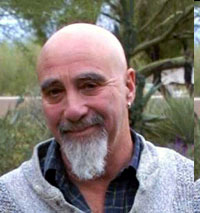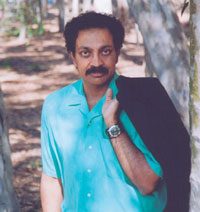
Episode 3
If you want to see what happens when a masquerading new ager presents ideas about collective quantum consciousness to a group of top scientists in their fields, watch this. He gets shelled in an embarrassing way. His talk is semi-followable, but then he leaps into this sheer speculation about his untestable hypotheses. At the end of the talk I exclaimed "oh thats bullshit", and in the post mortem discussion it seems the experts thought it was even more bullshit than I surmised.
I think Hameroff has some great ideas, but this is a case where we run into the danger of untestable quantum-speak. The issue of consciousness and quantum microtubules is too far out to verify. It is imagination hypothesis. Can it even be called science? I also think this is a case which really shows why, of all the sciences, there are more atheists to be found in biology than anywhere else. Stuart Hameroff can espouse that there is a Platonic underpinning in the conscious fabric of the universe which can motivate gene mutations ( a sophisticated ID mechanism). Most biologists understand too much about the red in tooth and claw aspect of nature to take such an idea seriously, thus their greater likelihood to embrace atheism. Hameroff suggests that there is a primordial moral underpinning to the fabrisc of the universe, whereas what we know of nature seems to reveal quite persuasively (to many of us anyways) that nature couldn't give the remotest shit about morality, and that morality evolved quite recently finding it's use primarily as a tool for social politics and reciprocity. To understand my point, consider only those under age 30 (the population of our species for the vast majority of the time we have been around) and observe people around the ages of 17-22 hanging out in the malls and bullshitting on their cell phones. Observe the way they use morality, observe the way they socialize, and you will see precisely the whys and hows of the evolution of morality. It did not evolve because it made 60 year olds wise and reflective! as so many would romantically like to believe.
V.S. Ramachandran, the author of the great book "Phantoms in the Brain" was the next speaker. His talk was short but interesting as always. I always wonder if the way he rolls his R's is exaggerated intentionally.
He spoke of a person who had a disconnected right and left brain hemisphere. He could turn one side off and talk to each of them individually. The right side believed in God and the left side didn't. He then raised a religiious question of whether the right side would go to heaven and the left to hell.

No comments:
Post a Comment